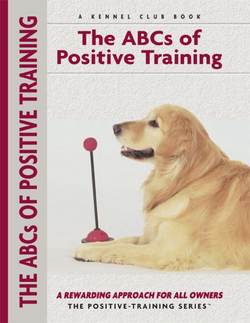Читать книгу Abc's Of Positive Training - Miriam Fields-Babineau - Страница 6
На сайте Литреса книга снята с продажи.
ОглавлениеContents
Simple as A-B-C
The Origin of Operant Conditioning
Explore a brief history and development of operant-conditioning methods and meet the pioneers in the field. Take a closer look at the work of B.F. Skinner and see how his research has affected our approach to training dogs and other animals.
Reinforcement and Punishment
As you embark on a positive-training program, learn the essentials: different types of reinforcers, schedules of reinforcement, different ways to modify a behavior, the use of correct timing, rewards and how to determine their value to a dog, self-rewarding behavior and different types of punishment.
Different Schools of Thought
Look at the different ways of implementing positive-reinforcement training. Explore luring, bridging/rewarding and capturing behavior, or using these methods in combination, to achieve results in a positive manner. Learn about successive approximation and become acquainted with clicker training.
Teaching Behavior Both Near and Far
Learn the basics of targeting and the methods used by some of the experts in the field today. You will find out how to teach your dog to target and what equipment is needed.
Behavior Shaping
Based on successive approximation, learn how to shape a behavior. Follow the ten key points of behavior shaping as outlined by one of its leading proponents and learn how to practice with a friend so that you’ll be more confident when trying it with your dog.
Loose Leash Walking
Learn how to teach one of the hardest lessons to a dog. Vary your method based on the dog’s age and attention span, and what rewards he finds valuable. Progress from off-leash in a secure area to heeling on-lead, introducing turns and performing with distractions. Compare the various types of training collars and learn how to prevent pulling.
Sit and Down
Using the methods you’ve learned, it’s time to teach two basic obedience commands: sit and down. Learn how to lure into the sit and teach the dog to sit during the heel exercise and for attention. Move on to the down and the special challenges that this command presents; also see how to combine the down with other behaviors.
Stay
Teach your dog to stay in the sit and down positions using brief increments of time and gradually progressing. Add movement into the stay, meaning walking alongside and around the dog while he maintains the position. Combine the stay with previously learned behaviors.
Recall and Distraction-Proofing
Teach your dog the most important command for him to know and to perform reliably: the recall or come. Increase the distance between you and teach your dog to ignore distractions so that your call takes precedence over his surroundings. Use previously learned behaviors to shape the drop-on-recall.
Positive Reinforcement in Everyday Life
Use positive reinforcement for more than just the basic commands. Use this method to house-train your dog as well as to prevent and/or cure common behavior problems, including jumping up, rummaging in the trash, mouthing and chewing, excessive barking, rushing the door and stealing food or other items.
More Sources of Information
